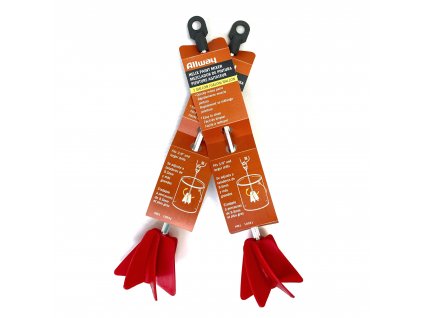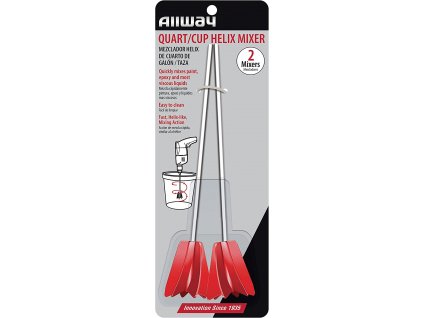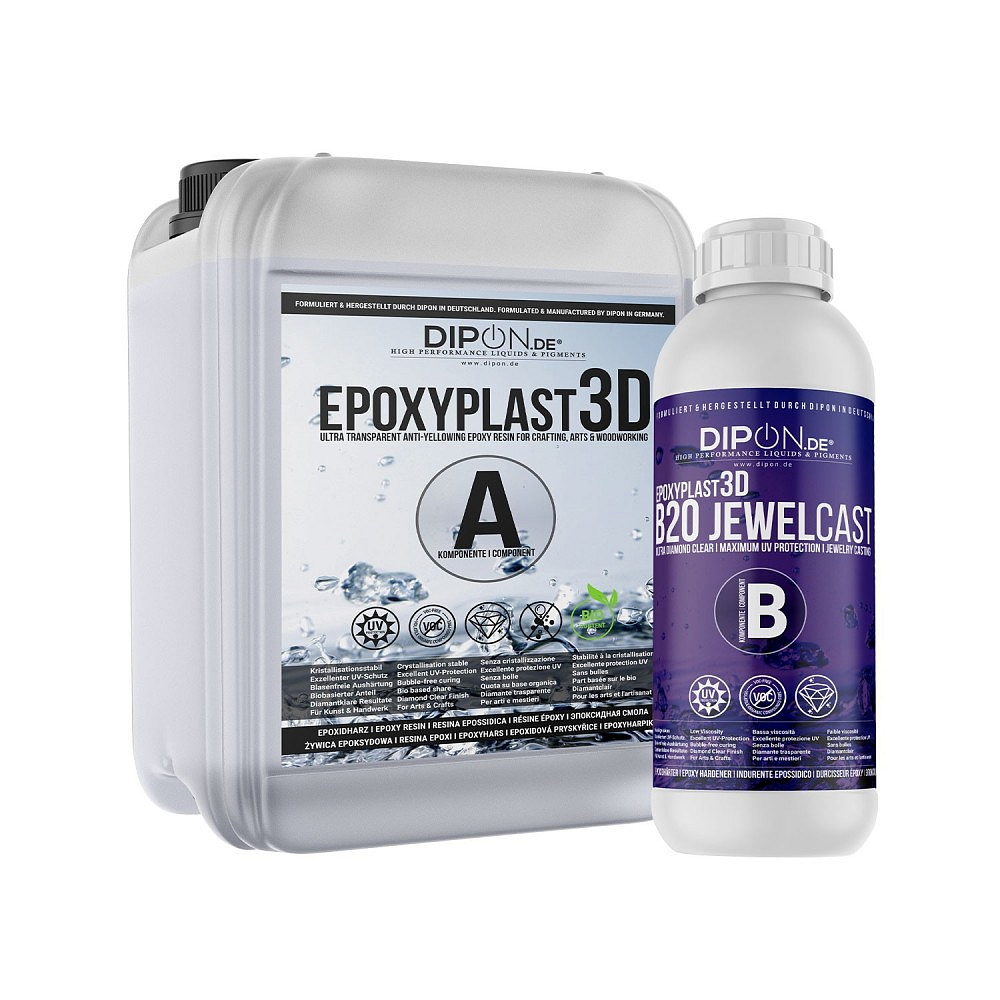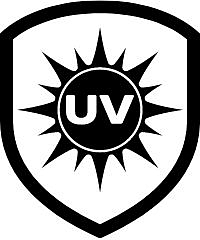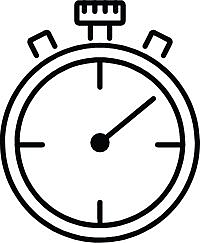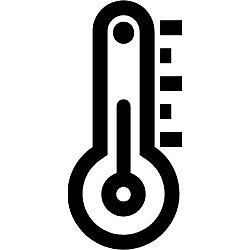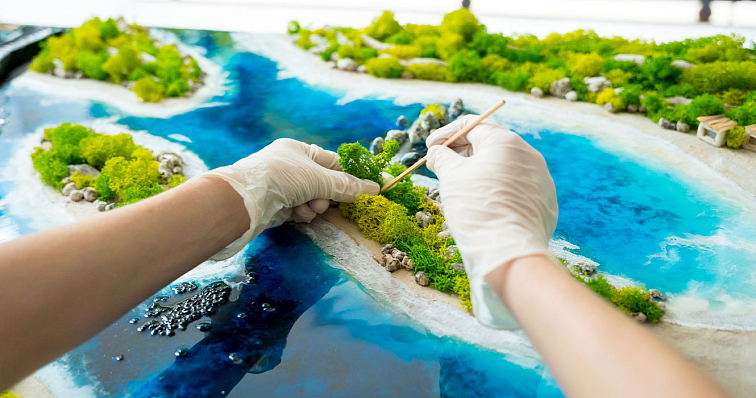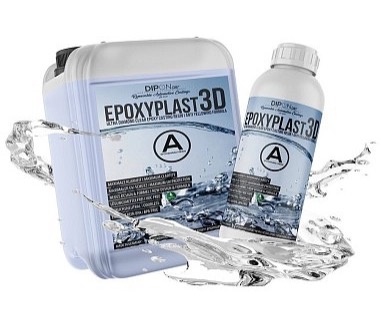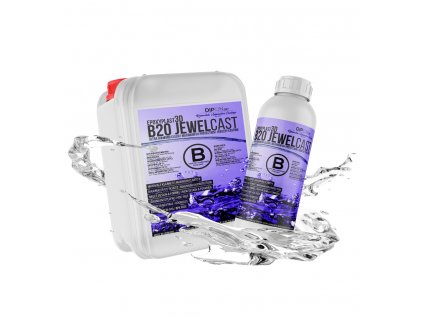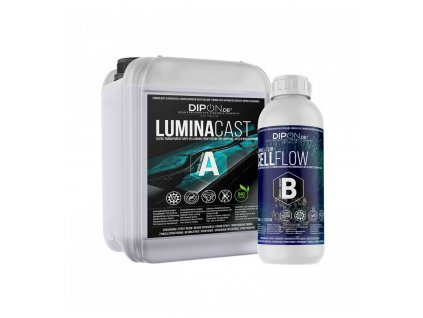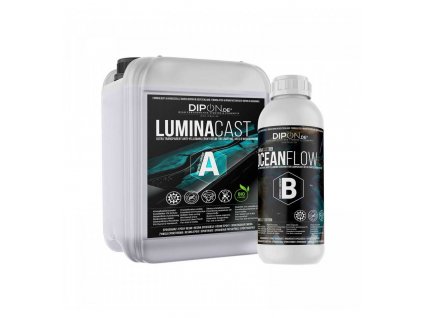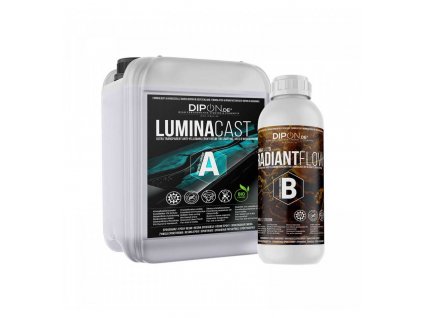DIPON Epoxyplast 3D B20 JewelCast 1,5 kg - Clear Epoxy Resin for Jewelry and Small Decorations
Code: 6443/001500Related products
Product detailed description
Additional parameters
| Category: | Epoxy Resins |
|---|---|
| Weight: | 1.67 kg |
| EAN: | 4063636026932 |
| ? Processing time: | Short time |
| ? Epoxy System Type: | Epoxyplast 3D B20 |
| Color: | Clear, Highly transparent |
| Package weight: | 1,5 Kg |
| Kontakt s potravinami: | Yes |
| Max thicknesses: | 2 cm |
| ? Max castable amount: | 2 l |
| ? UV Resistance: | Yes, Maximal |
| Type of use: | Jewelry production, Jewelry using silicone molds, Casting, Lamination, Glass and Carbon Laminates, Geode Art, Petri Art |
| Casting Size: | Small Casting |
| ? Viscosity: | Low - Thin |
| Doba zpracovatelnosti / Processing time: | 30 - 70 min |
| Poměr míchání / Mixing ratio: | 2 : 1 (A +B) hmotnostně |
| ? Čas gelace: | 50-100 min |
| ? Suchý na dotek: | 12 - 16 hod |
| Doporučená okolní teplota / Recommended ambient temperature: | 15 - 22 °C |
| ? Hranice exhoterm: | 38 °C |
| Brusitelný / Sandable: | 2 - 3 dny |
| ? Doporučené plné vytvrzení: | 4 - 7 dní |
| Smrštění / Shrinkage: | Nízké (<0.1 %) |
| ? Teplotní odolnost: | 70 °C |
| Tvrdost: | 83 SHORE D |
| Obsah VOC / VOC content: | 0 % |
| ? Viskozita: | 545 CPS |
| Hustota: | 1,07 g/cm3 |
| Doba míchání / Mixing time: | 3 - 4 min |
| Minimální doporučené množství směsi / Minimum recommended mixing amount: | 120 g |
Be the first who will post an article to this item!
Add a rating
Be the first who will post an article to this item!
| Manufacturing company : | DIPON.DE Removable Automotive Coatings GmbH & Co. |
|---|---|
| Address : | Ringofenstr. 39 I 44287, Dortmund, Deutschland |
| E-mail : | info@dipon.de |

